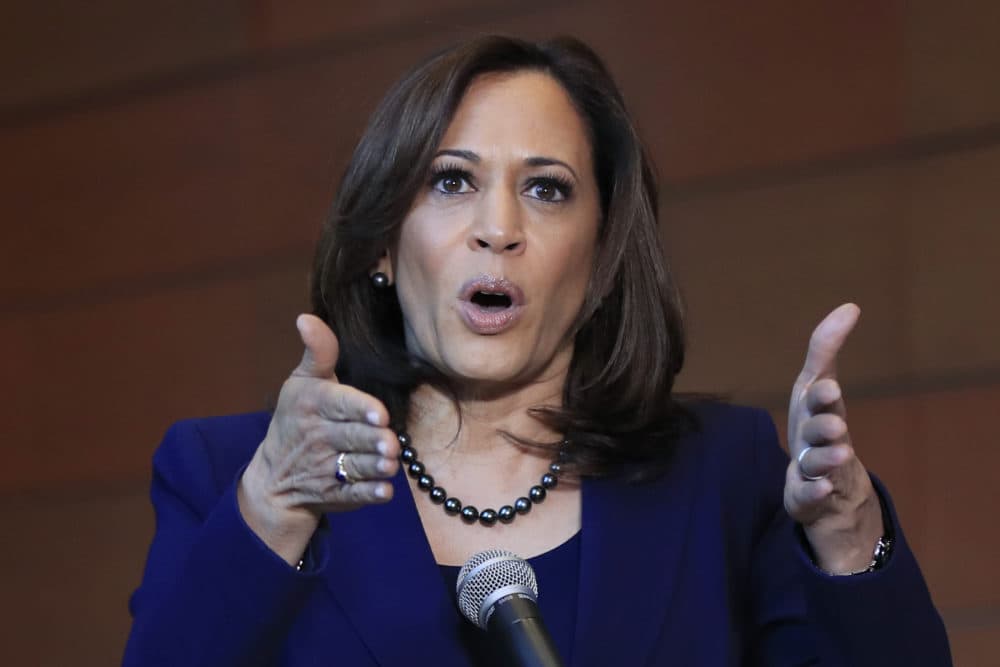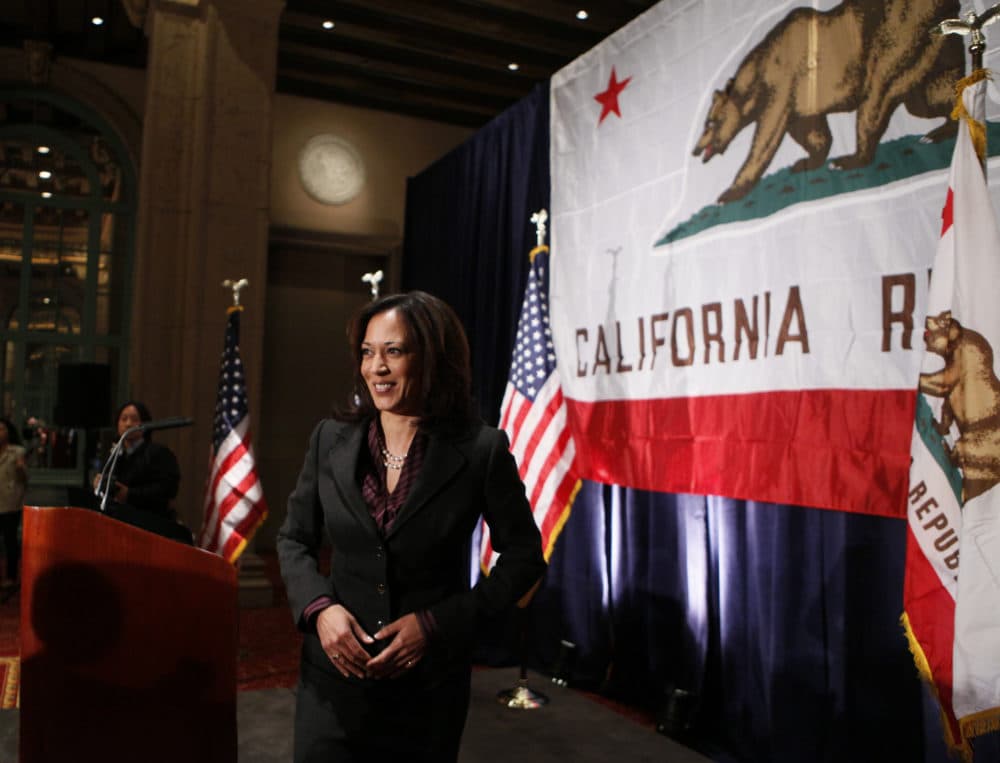Advertisement
Commentary
Kamala Harris Was A Prosecutor. That Doesn't Make Her Unfit To Be President

Kamala Harris, according to a progressive critic writing in The Intercept, “has a prosecutor problem.” Never mind that “the problem isn’t that Harris was an especially bad prosecutor. She made positive contributions ... The problem, more precisely, is that she was ever a prosecutor at all. To become a prosecutor is to make a choice to align oneself with a powerful and fundamentally biased system.”
I love this woman already.
Actually, it’s too early to know if Harris — San Francisco’s former district attorney, California’s former attorney general, current U.S. senator and newly declared presidential candidate — would make a good commander-in-chief. But that hasn’t stopped some of the progressives' wackier voices from rendering a thumbs down because of her career in law enforcement.
It is as true as it is ironic that a woman of color should answer for policies she pursued that may have disadvantaged black Californians in particular. Black Lives Matter has shown the reality of police and prosecutorial discrimination to be undeniable.
Dismissing the necessary social function [of law enforcement] is as mindless as blindly denying Black Lives Matter’s revelations.
But to say a prosecutor abetted a system so corrupt that the good things she did — her critics concede Harris did good -- can be ignored, as if prosecutors didn’t perform necessary service in putting bad people away? You might as well say progressivism doesn’t contribute a necessary service to our politics.
Time for a little perspective.
The port side of our politics is seasick over Harris’s fighting “to uphold wrongful convictions that had been secured through official misconduct that included evidence tampering, false testimony and the suppression of crucial information by prosecutors,” as Lara Bazelon, a law professor wrote, more temperately than the commentator quoted above. One example: As DA, Harris lost a case alleging that her office didn’t alert defense lawyers that a lab technician had deliberately “sabotaged” evidence, resulting in 600-plus case dismissals.
Bazelon also names convicts against whom Harris wielded technicalities, to keep them in prison, despite exculpatory evidence. Courts sometimes upheld her, but other times, she lost or had to reverse herself in the face of embarrassing publicity.
Advertisement
These are serious allegations. Balancing them out, one civil rights advocate cites Harris’s work to get job training and substance abuse treatment for non-violent, first-time offenders, many of them involved in crack-related crime, as well as her efforts to make police more accountable for misbehavior.
Who’s right? The microscopic examination of biography that is a presidential campaign is sure to help voters make their own informed decisions. But retreating into an ill-informed she was a prosecutor! crouch suggests there’s truth in Harris’s argument that some progressives harbor a knee-jerk bias against law enforcement.
Dismissing, without caveat, its necessary social function is as mindless as blindly denying Black Lives Matter’s revelations. Indeed, diversifying the ranks of prosecutors, as Harris did, is an essential step in addressing systemic discrimination. If her record in office is unblemished, well, only utopians would have expected otherwise.

To be clear, real reasons for reservation about her candidacy exist, on this and other issues. Her questioning of a judicial nominee for membership in the Catholic Knights of Columbus odorized legitimate questions about abortion and same-sex marriage with the slight stench of religious bigotry.
I don’t know if Harris supports an implicit religious test for the bench. But as a Catholic who has voted for pro-choice candidates on occasion despite disagreeing with them on that issue, I wonder whether her pro-choice views are barren of similar open-mindedness towards those of my faith.
What may be her biggest policy foray, a program of tax breaks for poor and working class Americans, is freighted with flaws, from cost to complexity. It doesn’t embrace true tax reform that would focus like a laser on simplifying the code.
But I don’t want to repeat the mistake of progressives who attack Harris’s prosecutorial role, making perfection the enemy of good. Neither party is offering a true tax reformer, and Harris’s plan, however problematic, is head and shoulders above the GOP’s 2017 needless giveaway to the well-off.
There are reasonable objections to aspects of Harris’s law enforcement record and questions she should answer. But to argue that her choice of career invalidates her candidacy stomps on reason. As Alexandria Ocasio-Cortez would say, don’t hate her because you ain’t her.
